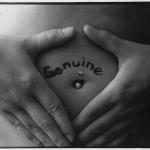I’ve been crunching NFSS numbers again, mostly assessing the sexual and relationship behaviors of young adults between ages 23-39. I don’t intend to make much of age-at-first-sex in my next book, but there are some interesting patterns worth noting.
Only 18 percent of respondents who reported first sex before age 14 also said their parents were—and are still—married; the same is true of 26 percent who reported first sex at age 14, 31 percent at age 15, 38 percent at age 16, 43 percent at age 17, 41 percent at age 18, and 57 percent above age 18.
Obviously, delaying first sex won’t likely keep your parents together (although it’ll probably please them). The other way around, however, makes more sense: intact families are conducive to adolescent thriving and wiser decision-making, and likely provide an environment in which sexual coupling doesn’t look quite so attractive, or is simply more difficult to make happen. Of course, marriage alone doesn’t cause this to occur, but rather is the context in which the things that likely matter here—better monitoring, more fulfilling parent-child relationships, better boundaries about romantic relationships—are far more likely to happen. Single parents and stepfamilies can recreate such things, to be sure. It’s just harder. And it’s less common, frankly.
Among all respondents who’ve already reported an age at first sex—that is, have already had sexual intercourse—those whose parents were and still are married reported a mean age at first sex of 18.6. Respondents whose parents divorced and in which the respondent lived with his mother (who remarried) reported an average age at first sex of 16.0.
I could compare other types of household structures and parental experiences, but none of them report as high an average age at first sex as do those whose moms and pops are still married. The two that come closest are when mom is divorced but has no romantic relationships until the respondent leaves the home, or when one parent dies and the surviving parent reports no new relationships. (Both hover around 17.8). After that, having been adopted by age 2 is next, at 17.6.
Marriage isn’t a cakewalk. I get that. Heck, I experience that. Some are better than others. Some seem to win the lottery, while others simply endure, and most of us are somewhere in between. Insert all the qualifications here about leaving violent situations, etc. Yes, I hear you.
But the fact remains—sticking around may not fit your optimal vision of a good life, but it’s the best, on average, for kids. I’ve only discussed one outcome here—average age at first sex. There are others. Scores of them. If you possibly can, hang in there, moms and dads.















